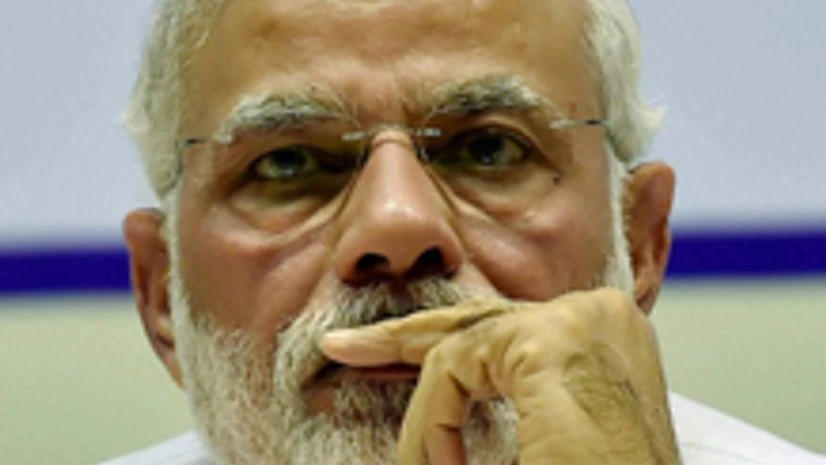Prime Minister Narendra Modi needs to offer much more than just his best intentions to clean up India's whimsical tax regime to help convince insurers.
Companies from Allianz SE to American International Group Inc. are avoiding offering tax-liability coverage in India's cross-border mergers and acquisitions market because of a relatively high risk of disputes. None of the 21 general insurers operating in the country provides cover for tax risks arising from M&A transactions.
"No one is comfortable offering that product in geographies without a stable tax regime," said Sushant Sarin, senior vice-president for commercial lines and broking at Tata AIG General Insurance Co., the local unit of the New York-based insurer. "Demand for insurance cover on cross-border deals tax risks in India has been surging, though."
Also Read
More than a year after coming to power, Modi has failed to allay investor concerns over a law that allows authorities to make retrospective tax claims. Instead of repealing it, he promised to refrain from reviewing old deals, adding to the muddle as authorities face pressure to boost one of the world's lowest tax collection rates.
Vodafone, Nokia
Tax indemnity insurance is purchased either by the buyer or seller involved in an acquisition, where a known tax issue has been identified during due diligence process. The insurer typically agrees to compensate for any additional taxes, interest or penalty that has to be paid by the insured in the transaction.
Cross-border deals involving overseas companies and their Indian units spark transfer pricing questions about how to value the transactions for tax purposes. Modi has blamed decisions by the previous government for some of the recent tussles.
Some of the companies embroiled in tax disputes with the finance ministry include Nokia OYJ, Vodafone Group Plc, Cairn India Ltd. and Cadbury chocolate maker owned by Mondelez International Inc. for total claims of about $10 billion.
In the Nokia case, tax spats forced the company to suspend operations at its factory in Chennai last year, with thousands of workers offered voluntary retirement.
Deals rise
The $3 billion case over capital gains from Vodafone's 2007 acquisition of Hutchison Whampoa Ltd's Indian business is going into international arbitration even after India's Supreme Court ruled against the government's claim in 2012. Cairn India has said its $3.3 billion dispute will deter overseas investment. Mondelez is contesting an excise duty claim.
The bad press may be deterring some companies from pursuing deals in India, said Jacob Mathew, managing director and co-founder of Mumbai-based investment bank MAPE Advisory Group Pvt.
"Many transactions haven't happened as tax indemnity insurance is not available in India," he said. "Corporates who are new to India find this daunting."
Still, mergers and acquisitions involving Indian companies have touched $48.4 billion this year, 11 percent more than the whole of 2014, according to data compiled by Bloomberg. Overseas firms have announced $13.2 billion of acquisitions in India this year, versus $17.1 billion in 2014.
Even after Modi told investors on a trip to Germany in April that India is a "changed country" with a more "transparent, responsive and stable" regulatory framework, officials on the ground are often under pressure to pursue claims to shore up revenue.
'No Product'
Modi's government has vowed to narrow the budget deficit to 3.9 percent of gross domestic product in the year to March 31, 2016, with a projection of 16 percent increase in tax collections. India's tax-to-GDP ratio was 10.8 percent in 2012, higher than only 12 of about 200 countries tracked by the World Bank.
"This is an issue investors have to deal with and hence makes deals more complicated to execute," Ajeeth Narayan, country head for India at Investec Plc, which owns a bank and money manager in South Africa and the U.K., said in an e-mail. "Then, there is the additional cost element for covering off this risk as well."
A transparent tax regime is important for a robust mergers and acquisition market as investors want to grow their business rather than get drawn into a long battle with tax authorities, he said.
Underwriting and pricing risk in a segment where the law changes retrospectively is a challenge, according to Tata AIG's Sarin. Insurers offer the tax indemnity insurance in markets with stable tax regimes such as the U.S., U.K. and Singapore, he said.
"We have no such product in the Indian market and neither does anyone else to the best of my knowledge," said Sasikumar Adidamu, Mumbai-based chief technical officer for non-motor insurance at Bajaj Allianz General Insurance, the local unit of the Munich-based insurer.

)
